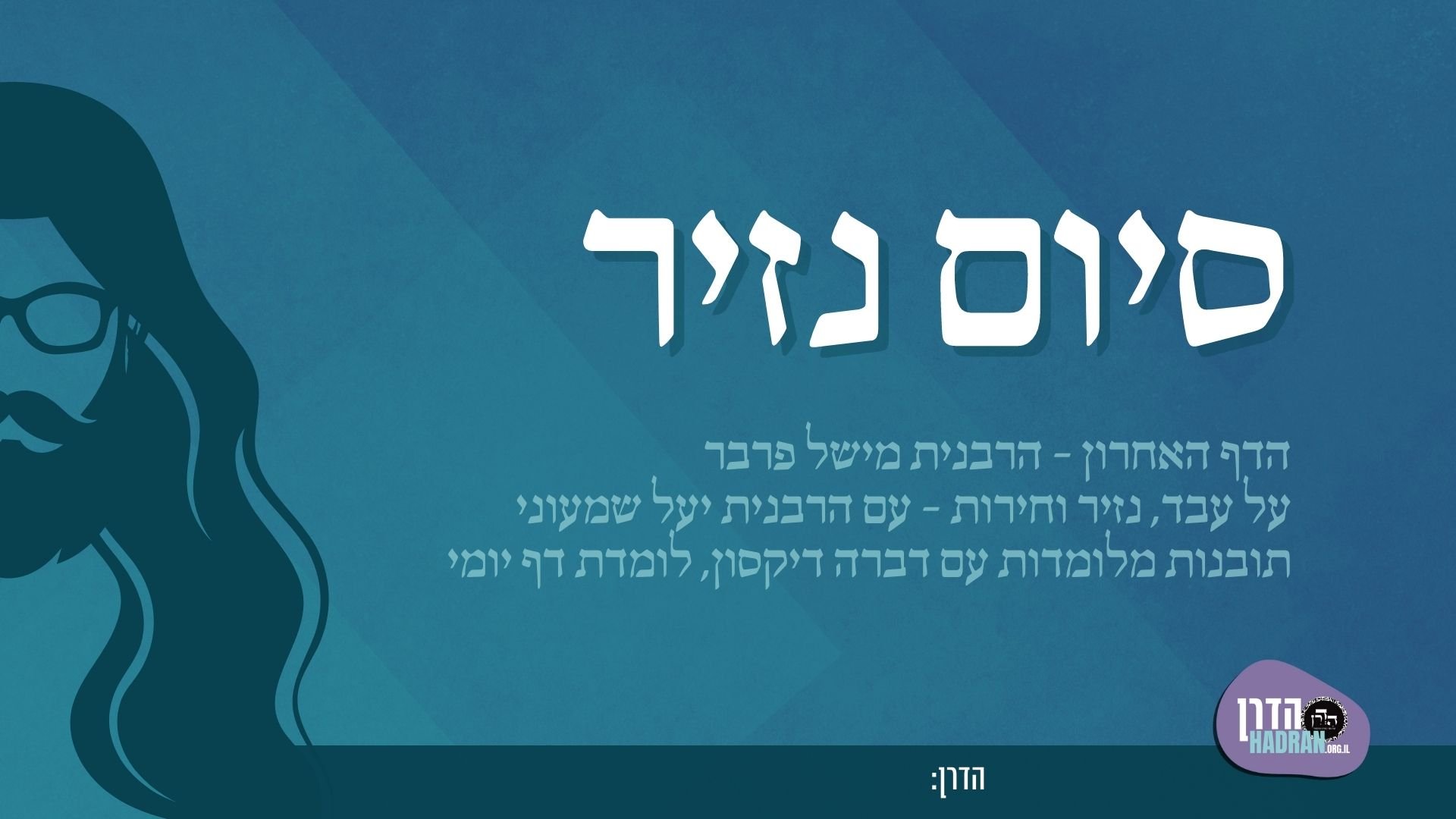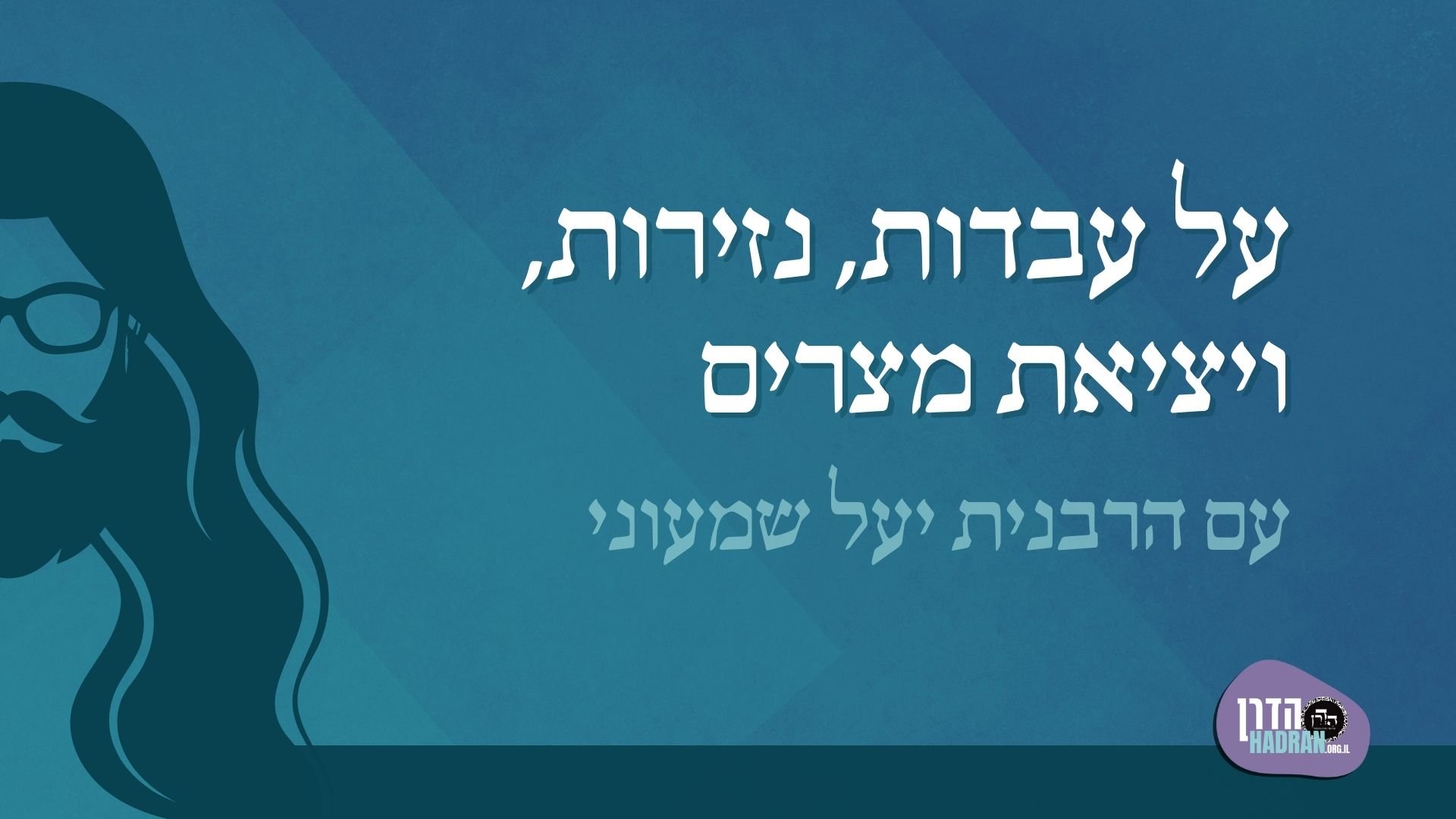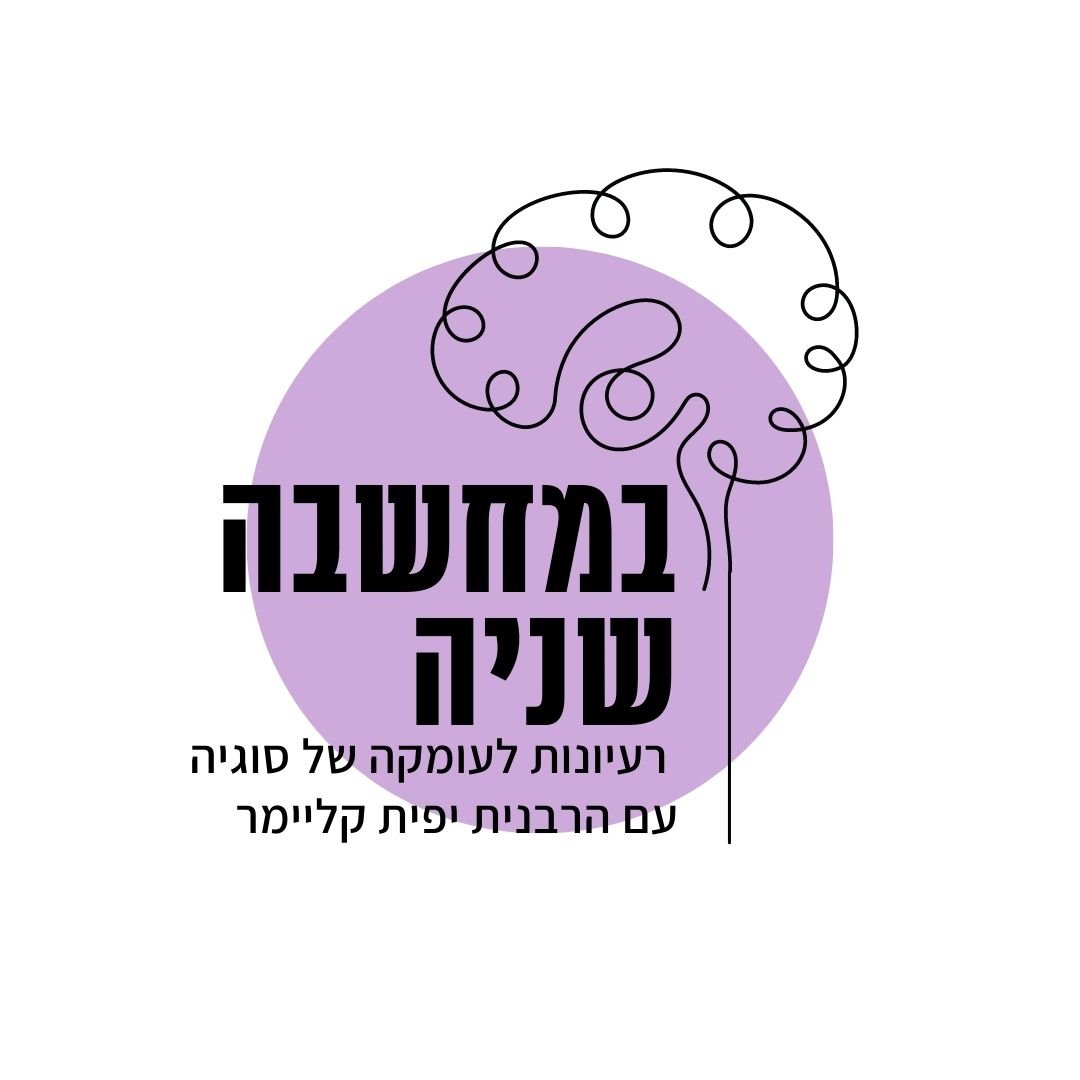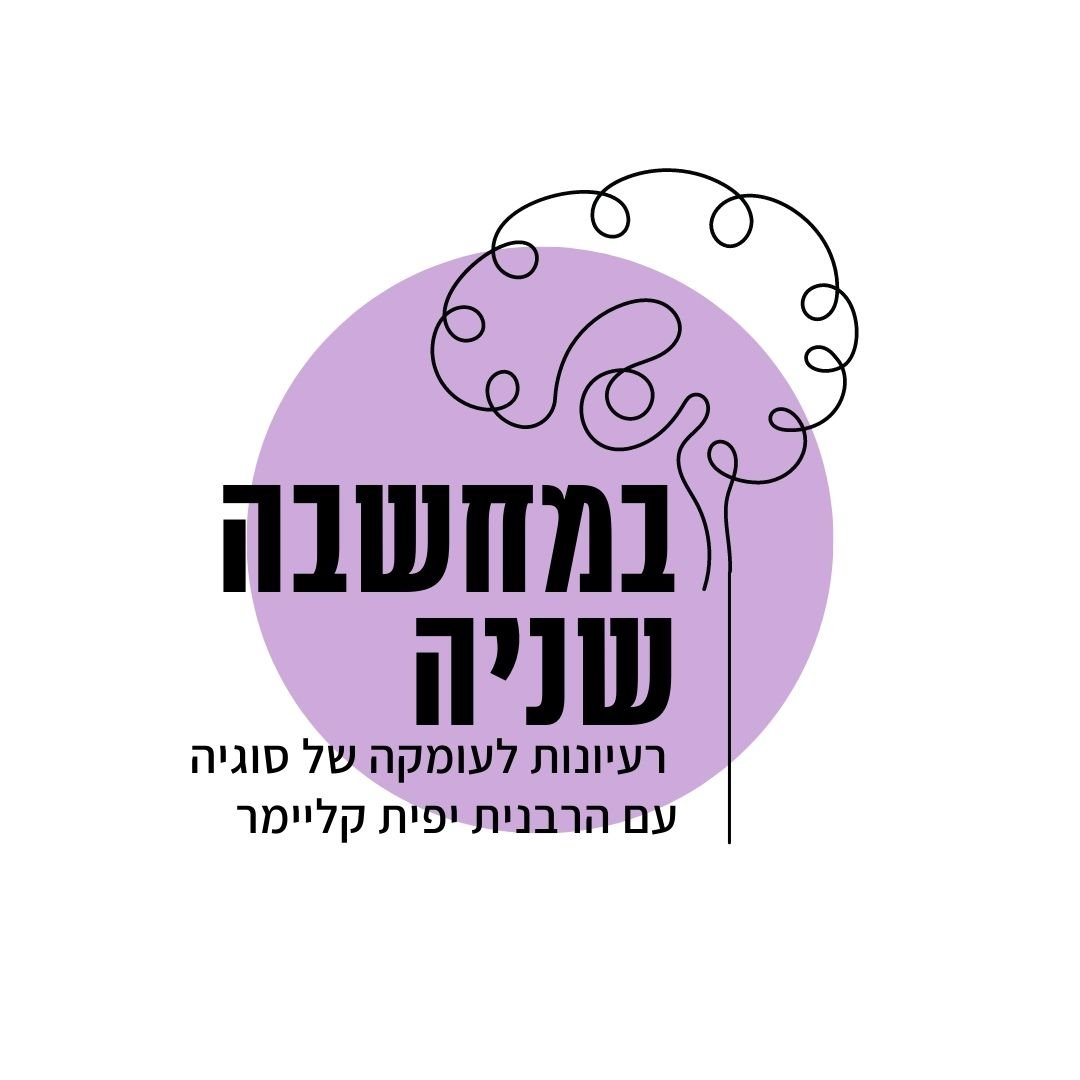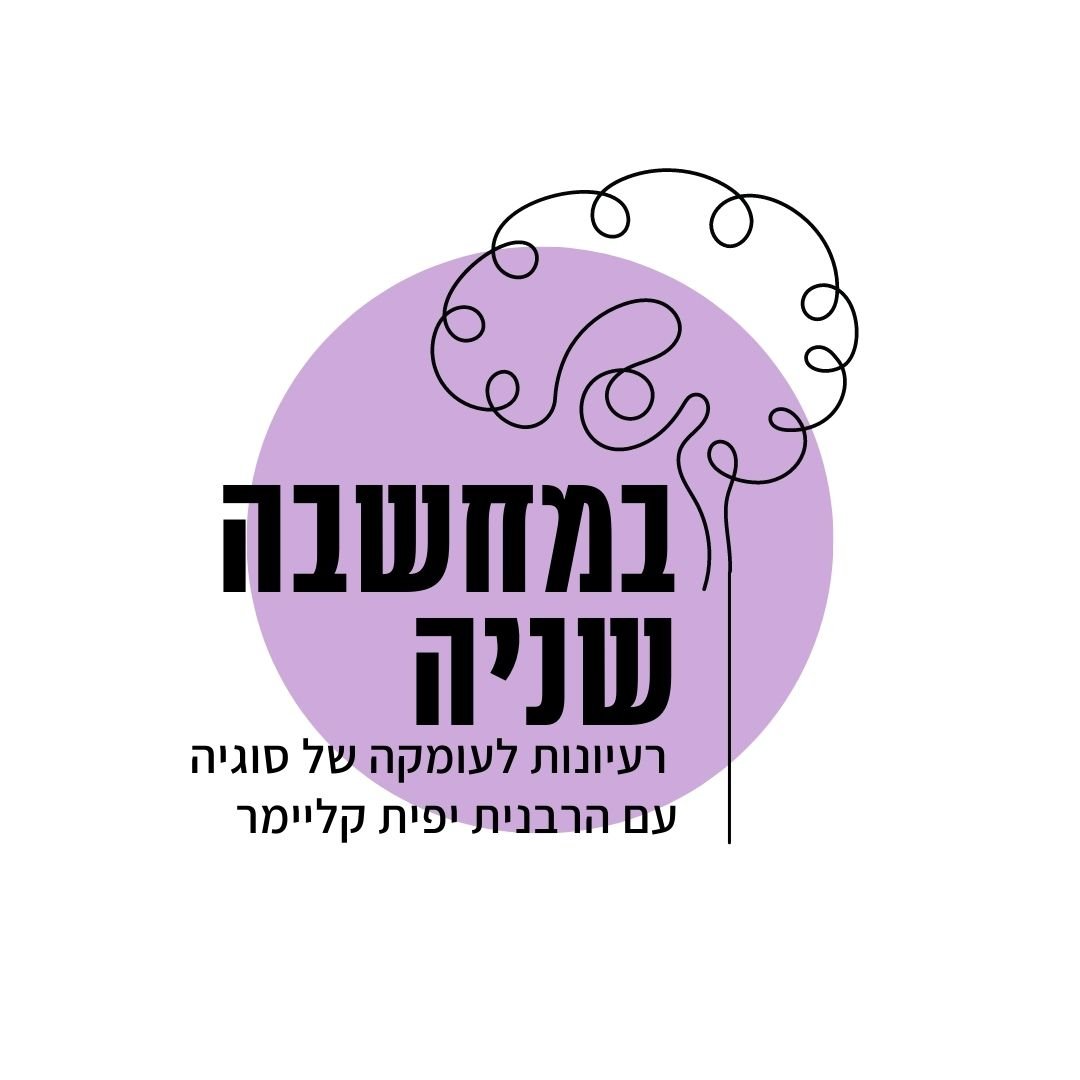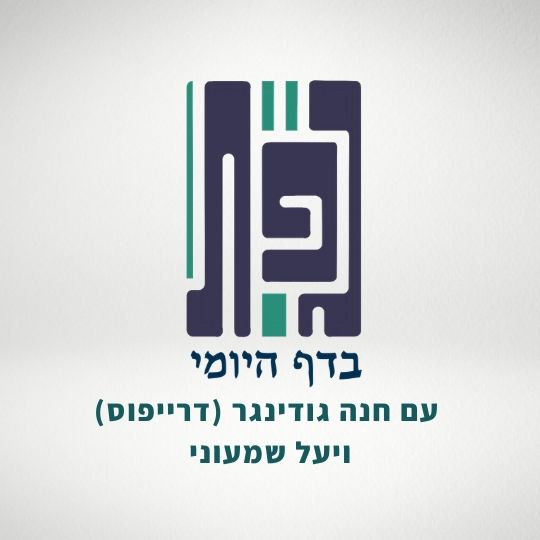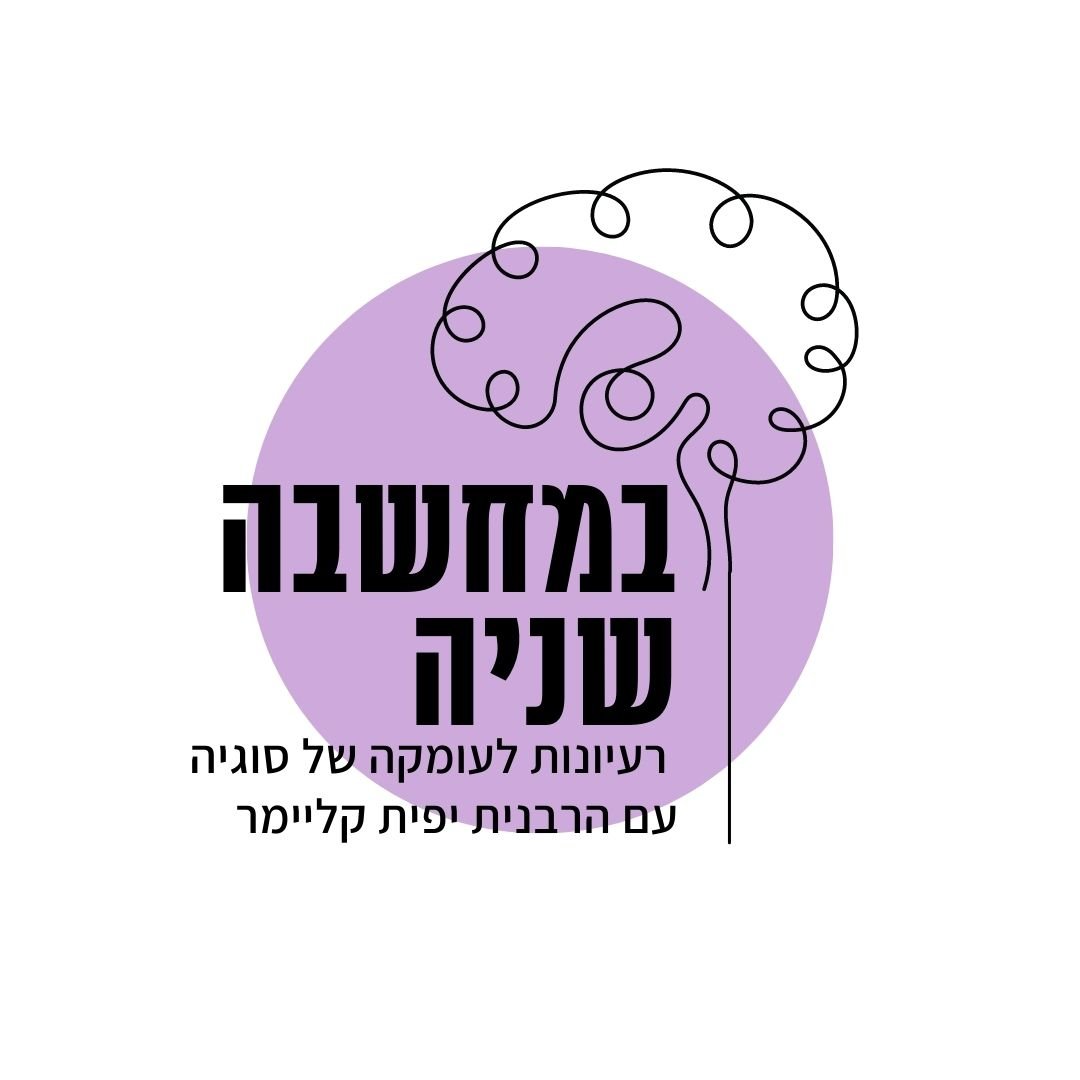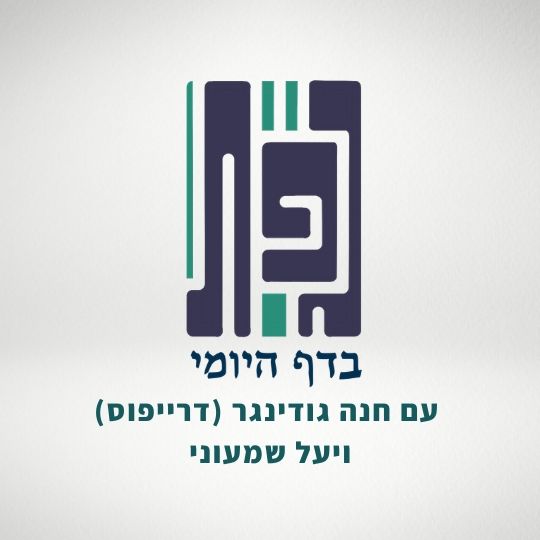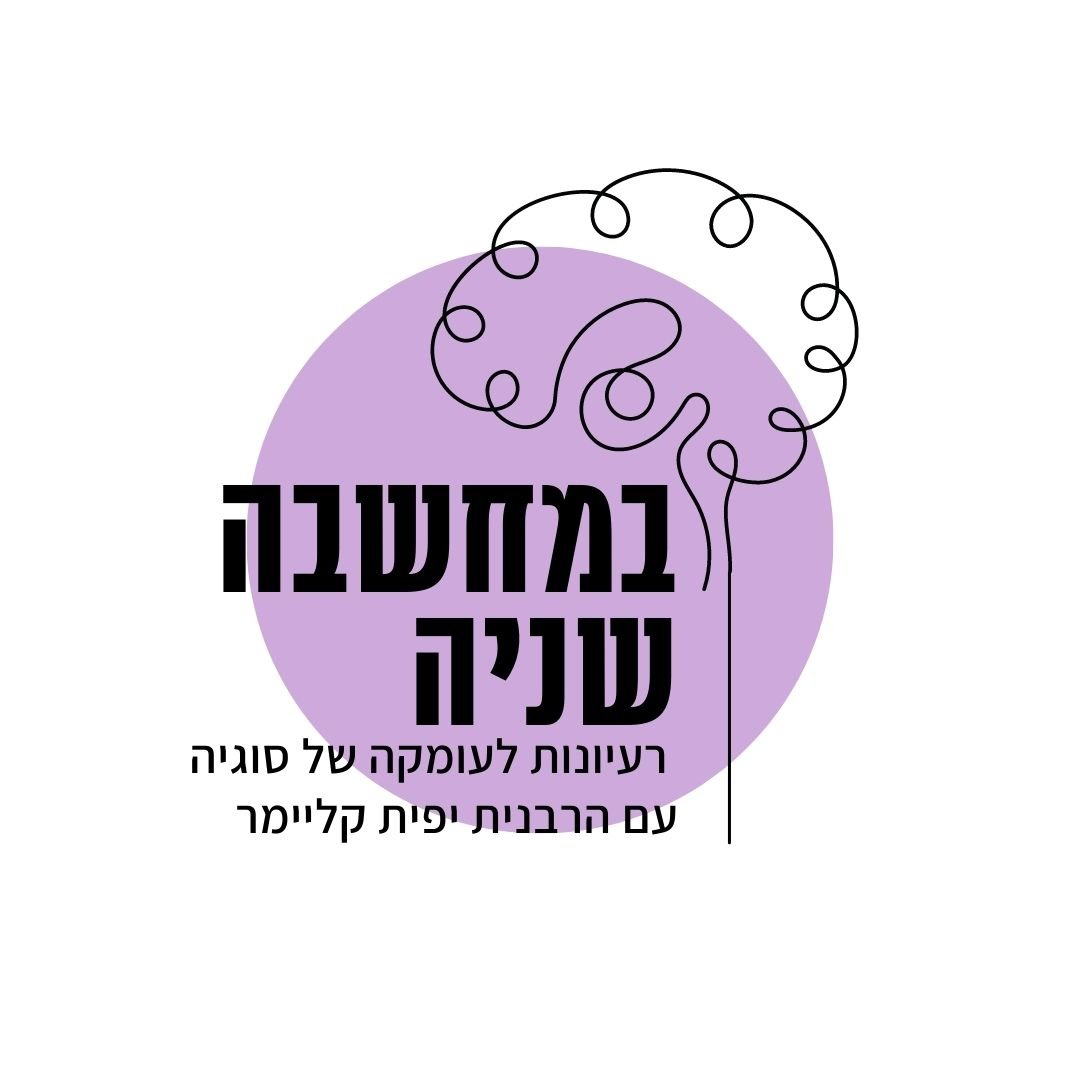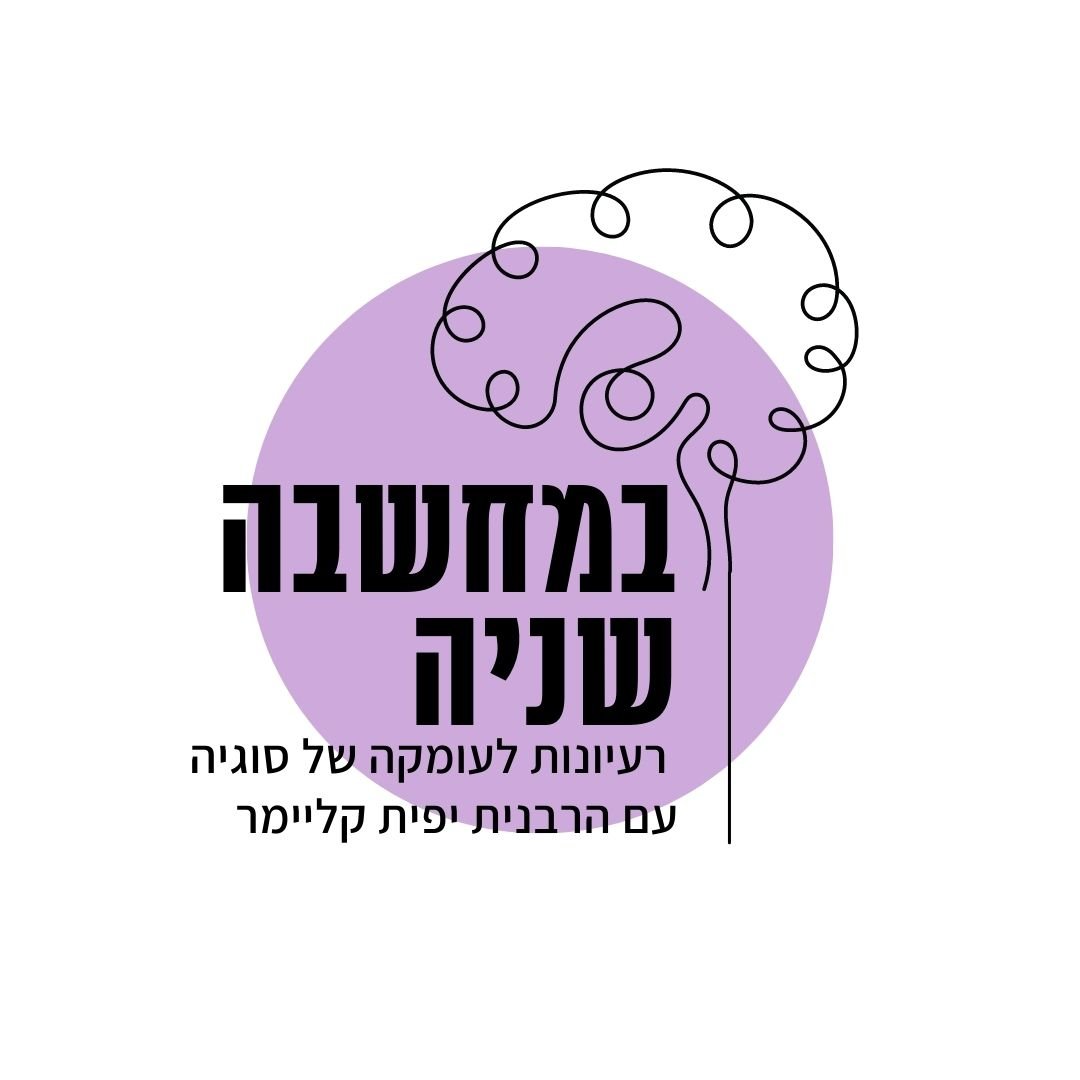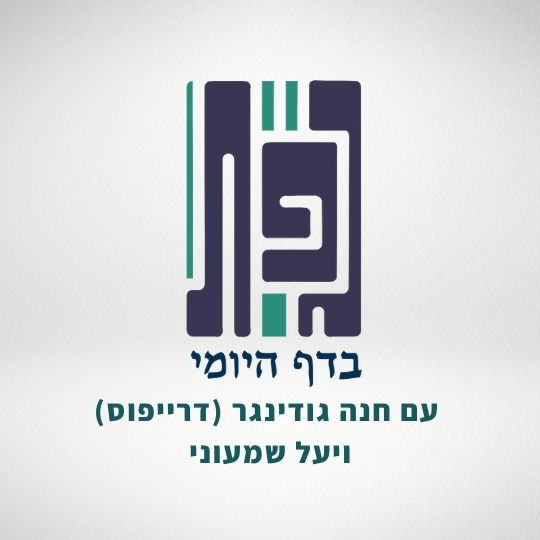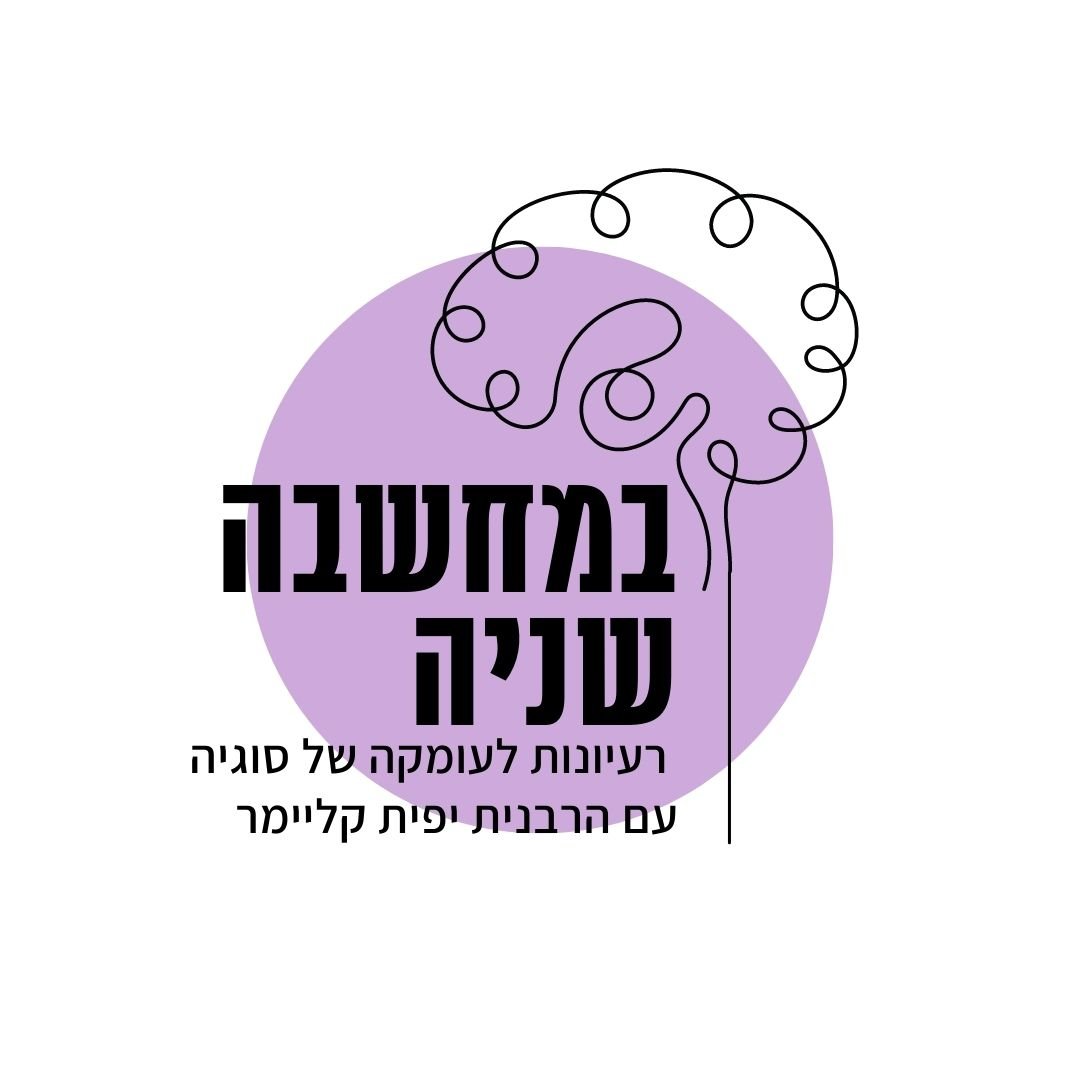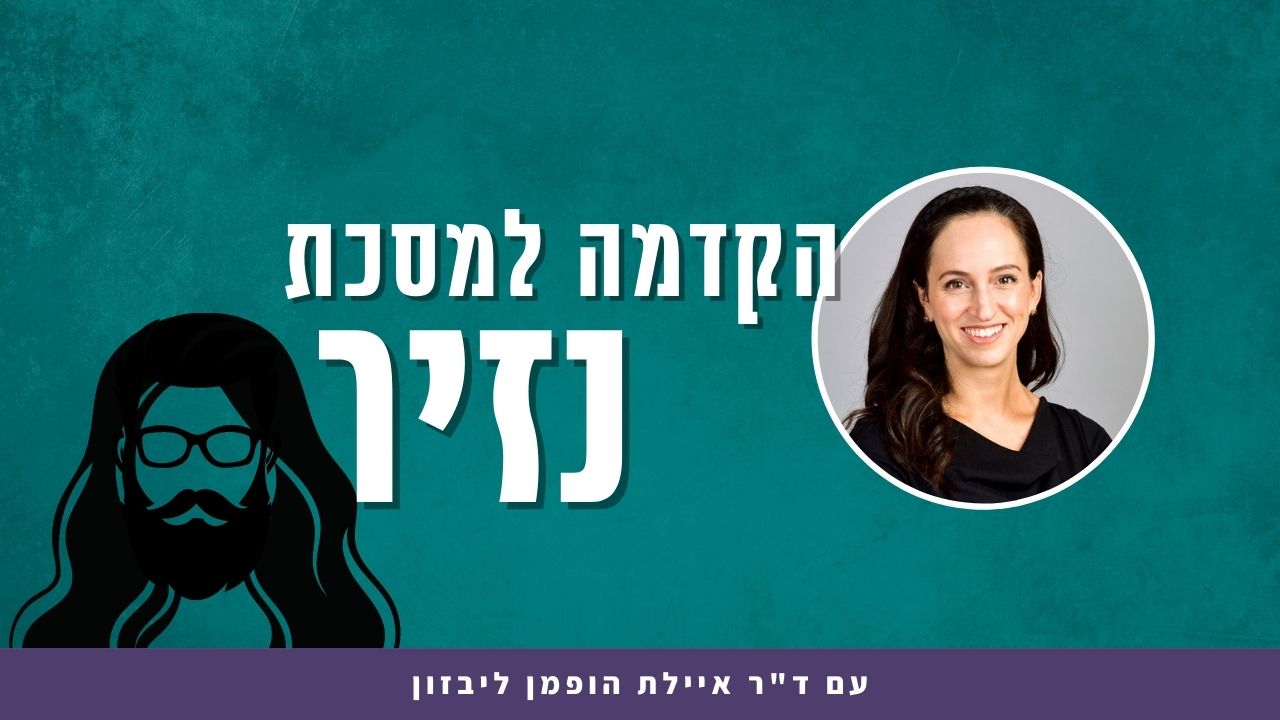נזיר כד
זָכְתָה וְקָדְמָה אַרְבָּעָה דּוֹרוֹת בְּיִשְׂרָאֵל לַמַּלְכוּת.
she merited to precede the younger daughter by four generations to the monarchy of the Jewish people. The descendants of Ruth the Moabite ruled over the Jewish people for four generations: Obed, Yishai, David, and Solomon, before the reign of Solomon’s son Rehoboam, whose mother was Naamah the Ammonite.
מַתְנִי׳ הָאִשָּׁה שֶׁנָּדְרָה בְּנָזִיר, וְהִפְרִישָׁה אֶת בְּהֶמְתָּהּ, וְאַחַר כָּךְ הֵיפֵר לָהּ בַּעֲלָהּ. אִם שֶׁלּוֹ הָיְתָה הַבְּהֵמָה — תֵּצֵא וְתִרְעֶה בָּעֵדֶר.
MISHNA: With regard to a woman who vowed to be a nazirite and separated her animals for her offerings of purity at the end of her term, and afterward her husband nullified her vow, which means that she is not in fact a nazirite, what becomes of these animals? If the animal was his, it shall go out and graze among the flock until it becomes blemished, like regular non-consecrated animals.
וְאִם שֶׁלָּהּ הָיְתָה הַבְּהֵמָה, הַחַטָּאת — תָּמוּת, וְעוֹלָה — תִּקְרַב עוֹלָה, שְׁלָמִים — תִּקְרַב שְׁלָמִים, וְנֶאֱכָלִין לְיוֹם אֶחָד, וְאֵינָן טְעוּנִין לֶחֶם.
And if the animal was hers, different halakhot apply to the various offerings: The animal she set aside as a sin-offering must be left to die by being shut in an enclosed area and deprived of food and water, as will be explained in the Gemara. And the animal separated for a burnt-offering is sacrificed on the altar as a burnt-offering, as in any case one may bring a voluntary burnt-offering. As for the one designated for a peace-offering, it is sacrificed as a voluntary peace-offering. And this peace-offering is eaten for only one day, in accordance with the halakha of the nazirite’s peace-offering, despite the fact that regular peace-offerings may be eaten for two days. But the offering does not require bread, i.e., loaves and wafers, unlike that of a nazirite.
הָיוּ לָהּ מָעוֹת סְתוּמִין — יִפְּלוּ לִנְדָבָה. מָעוֹת מְפוֹרָשִׁין, דְּמֵי חַטָּאת — יֵלְכוּ לְיָם הַמֶּלַח. לֹא נֶהֱנִין, וְלֹא מוֹעֲלִין בָּהֶן.
If she had unallocated funds, i.e., she had separated money for her offerings but had not stated which coins were designated for which offering, all the money will be earmarked for communal gift offerings. If she had allocated funds, i.e., she had decided which coins were for the payment of each offering, even if she had not yet purchased the animals, the money for the sin-offering is taken and cast into the Dead Sea, i.e., it must be destroyed, either by being thrown into the sea or by some other means. One may not benefit from it, as it possesses a measure of sanctity, but one also does not misuse property consecrated to the Temple with it. In other words, if one did derive benefit from this money he is not liable to bring an offering for misusing consecrated property.
דְּמֵי עוֹלָה — יָבִיאוּ עוֹלָה, וּמוֹעֲלִין בָּהֶן. דְּמֵי שְׁלָמִים — יָבִיאוּ שְׁלָמִים, וְנֶאֱכָלִין לְיוֹם אֶחָד, וְאֵין טְעוּנִין לֶחֶם.
As for the money for the burnt-offering, a burnt-offering is brought with those coins, and one who benefits from it is liable for misuse of consecrated property, as it is sacred since it can be used toward the purchase of a gift offering. Similarly, with regard to the money for a peace-offering, a peace-offering is brought with those coins, and it is eaten for one day and does not require bread.
גְּמָ׳ מַאן תְּנָא דְּבַעַל לָא מִשְׁתַּעְבַּד לַהּ? אָמַר רַב חִסְדָּא: רַבָּנַן הִיא. דְּאִי סָלְקָא דַּעְתָּךְ רַבִּי יְהוּדָה הִיא, אַמַּאי תֵּצֵא וְתִרְעֶה בָּעֵדֶר? הָא מִשְׁתַּעְבַּד לַהּ.
GEMARA: The Gemara inquires: Who is the tanna who taught that a husband is not indebted to his wife, i.e., he is not required to provide her with her obligatory offerings? It is evident that the tanna of the mishna maintains that this is the case, as he rules that the animal does not remain sacred if it belonged to her husband. Rav Ḥisda said: It is the opinion of the Rabbis. As, if it should enter your mind that it is the opinion of Rabbi Yehuda, why should an animal that belonged to the husband go out and graze among the flock until it becomes blemished? After all, the husband is indebted and required to give her the offerings she requires, which means that her consecration is valid even if she used his animals.
דְּתַנְיָא, רַבִּי יְהוּדָה אוֹמֵר: אָדָם מֵבִיא קׇרְבַּן עָשִׁיר עַל אִשְׁתּוֹ.
The Gemara provides the source for the opinion of Rabbi Yehuda: As it is taught in a baraita that Rabbi Yehuda says: A person brings the offering of a rich man on behalf of his wife. If a wife is obligated to bring an offering that is different depending on whether she is wealthy or poor, e.g., the offering of a childbearing woman, then even if she herself does not own enough to be considered wealthy, if her husband can afford it he must bring the offering of a rich person on her behalf.
וְכֵן כׇּל קׇרְבְּנוֹתֶיהָ שֶׁהִיא חַיֶּיבֶת, שֶׁכָּךְ כָּתַב לָהּ: ״כׇּל אַחְרָיוּת דְּאִית לִיךְ עֲלַי מִן קַדְמַת דְּנָא״.
And similarly, he brings all her offerings that she is obligated to bring, even those whose obligation preceded their marriage. The reason is that he wrote to her in her marriage contract like this: I accept upon myself all claims of guarantee that you have upon me from beforehand. These obligations include her offerings.
רָבָא אָמַר: אֲפִילּוּ תֵּימָא רַבִּי יְהוּדָה, כִּי מְשַׁעְבַּד לַהּ — בְּמִילְּתָא דִּצְרִיכָא לַהּ, בְּמִילְּתָא דְּלָא צְרִיכָא לַהּ — לָא.
Rava said: You can even say that the mishna is in accordance with the opinion of Rabbi Yehuda, and nevertheless the husband is under no obligation if he nullified her vow. The reason is as follows: When is he obligated to bring her offerings? It is only in the case of a matter that is necessary for her to bring. However, in the case of a matter that is not necessary for her to bring, he is under no such obligation. Here, too, once he has nullified her naziriteship, she is no longer in need of this offering.
אִיכָּא דְּאָמְרִי: מַאן תַּנָּא? אָמַר רַב חִסְדָּא: רַבִּי יְהוּדָה הִיא. וְכִי מְשַׁעְבַּד לַהּ — בְּמִילְּתָא דִּצְרִיכָא לַהּ, בְּמִילְּתָא דְּלָא צְרִיכָא לָהּ — לָא. דְּאִי רַבָּנַן — לָא מְשַׁעְבַּד לַהּ כְּלָל.
Some say a different version of this discussion: Who is the tanna who taught that only a husband who nullified his wife’s vow is exempt from providing her offerings? Rav Ḥisda said that it is Rabbi Yehuda, and his opinion is as follows: When is he indebted to fund her offerings? It is in the case of a matter that is necessary for her to bring, but in the case of a matter that is not necessary for her to bring, he is under no such obligation. As, if it is in accordance with the opinion of the Rabbis, he is not mortgaged to her in this regard at all.
אֶלָּא הֵיכִי דָּמֵי דִּמְשַׁעְבַּד לַהּ — כְּגוֹן דְּאַקְנְיַיהּ לַהּ, וְכֵיוָן דְּאַקְנֵי לַהּ — הָוֵה דְּנַפְשַׁהּ.
Rather, what are the circumstances in which he is obligated to provide her offering, according to the opinion of the Rabbis? For example, if he transferred the animal to her possession. But in that case, since he has transferred it to her, it is her own, which means that she has effectively separated the offering from her own property. The mishna cannot be referring to this situation, as the animal does not revert to a non-sacred state in a case of this kind. Evidently, the mishna is in accordance with the opinion of Rabbi Yehuda.
רָבָא אָמַר: אֲפִילּוּ תֵּימָא רַבָּנַן, כִּי מַקְנֵי לַהּ — נָמֵי בְּמִלְּתָא דִּצְרִיכָא לַהּ, בְּמִילְּתָא דְּלָא צְרִיכָא לַהּ — לָא מַקְנֵי לַהּ.
Rava said: You can even say that the mishna is in accordance with the opinion of the Rabbis, and the reason the animal loses its sanctity is that even when he transfers it to her, he does so for a matter that is necessary for her to bring, but for a matter that is not necessary for her to bring, he does not transfer it to her.
אִם שֶׁלָּהּ הָיְתָה בְּהֶמְתָּהּ, חַטָּאת — תָּמוּת, וְעוֹלָה — תִּקְרַב. הִיא מְנָא לַהּ? הָאָמְרַתְּ: מַה שֶּׁקָּנְתָה אִשָּׁה קָנָה בַּעְלָהּ! אָמַר רַב פָּפָּא: שֶׁקִּמְּצַתָּה מֵעִיסָּתָהּ. אִיבָּעֵית אֵימָא: דְּאַקְנִי לַהּ אַחֵר, וַאֲמַר לַהּ: ״עַל מְנָת שֶׁאֵין לְבַעְלֵיךְ רְשׁוּת בָּהֶן״.
§ The mishna teaches: If the animal was hers, the sin-offering must be left to die and the burnt-offering is sacrificed. The Gemara asks: She, this married woman, from where does she have her own property? Haven’t you said as a principle that with regard to any item that a woman acquires, her husband automatically acquires it from her? Rav Pappa said: This is referring to a case where she saved it from her dough, i.e., she was able to buy the animal with the money she saved by eating less. And if you wish, say instead that another person transferred the property to her, and he said to her that he is doing so on the condition that your husband has no rights to it. In that case the wife is the exclusive owner of the animal.
הָעוֹלָה — תִּקְרַב עוֹלָה, וְהַשְּׁלָמִים — תִּקְרַב כּוּ׳. אֲמַר לֵיהּ שְׁמוּאֵל לַאֲבוּהּ בַּר אִיהִי: לָא תִּיתֵּיב עַל כַּרְעָיךְ עַד דְּאָמְרַתְּ לִי הָדָא מִילְּתָא: וְאֵלּוּ הֵן אַרְבָּעָה אֵילִים שֶׁאֵינָן טְעוּנִין לֶחֶם: שֶׁלּוֹ, וְשֶׁלָּהּ, וְשֶׁלְּאַחַר הַמִּיתָה, וְשֶׁלְּאַחַר כַּפָּרָה.
§ The mishna taught that the burnt-offering is sacrificed as a burnt-offering and the peace-offering is sacrificed as a peace-offering. Shmuel said to Avuh bar Ihi: You shall not sit on your feet until you say and explain to me this matter taught in a baraita: And these are the four rams of the nazirite’s offering that do not require bread to be brought with them, in contrast to the usual practice: His, hers, the one brought after death, and the one brought after the nazirite has gained atonement by means of a different offering.
שֶׁלָּהּ — הָא דַּאֲמַרַן. שֶׁלּוֹ — דִּתְנַן: הָאִישׁ מַדִּיר אֶת בְּנוֹ בְּנָזִיר, וְאֵין הָאִשָּׁה מַדֶּרֶת אֶת בְּנָהּ בְּנָזִיר. גִּילַּח, אוֹ שֶׁגִּילְּחוּהוּ קְרוֹבִים, מִיחָה, אוֹ שֶׁמִּיחוּהוּ קְרוֹבִים.
The Gemara clarifies this statement: Hers, this is that which we just said, the offering of a woman who separated an animal of her own before her husband proceeded to nullify her vow. His, as we learned in a mishna (28b): A man can vow his son to become a nazirite, i.e., he can apply a vow of naziriteship to his minor son, but a woman cannot vow her son to become a nazirite. If the son objects, either of his own initiative or at the behest of others, his father’s vow is canceled. Consequently, if the boy shaved his hair during the period of naziriteship, thereby demonstrating his desire not to be a nazirite, or if relatives shaved him, or even if the minor performed no action at all but simply objected, or if his relatives made him object, his naziriteship is canceled.
הָיוּ לוֹ מָעוֹת סְתוּמִין — יִפְּלוּ לִנְדָבָה. מָעוֹת מְפוֹרָשִׁין, דְּמֵי חַטָּאת — יֵלְכוּ לְיָם הַמֶּלַח, דְּמֵי עוֹלָה — יָבִיאוּ עוֹלָה, וּמוֹעֲלִין בָּהֶן. דְּמֵי שְׁלָמִים — יָבִיאוּ שְׁלָמִים, וְנֶאֱכָלִין לְיוֹם אֶחָד, וְאֵינָן טְעוּנִין לֶחֶם.
In that case, if he had unallocated funds, which had been consecrated for the child’s offerings but not designated for any particular offering, all the money will be earmarked for communal gift offerings. If he had allocated funds designated for a particular offering, the money for a sin-offering is taken and cast into the Dead Sea; the money for a burnt-offering is brought as a burnt-offering, and one who benefits from it is liable for misuse of consecrated property; and the money for a peace-offering is brought as a peace-offering and it is eaten for one day and does not require bread.
שֶׁלְּאַחַר מִיתָה מְנָלַן, דְּתַנְיָא: הַמַּפְרִישׁ מָעוֹת לִנְזִירוּתוֹ — לֹא נֶהֱנִין וְלֹא מוֹעֲלִין בָּהֶן, מִפְּנֵי שֶׁהֵן רְאוּיִין לְהָבִיא בְּכוּלָּן שְׁלָמִים.
With regard to a ram that is after its owner’s death, from where do we derive that this offering requires no bread? As it is taught in a mishna (Me’ila 18a): With regard to one who separates money for his naziriteship without specifying an offering, he may not derive benefit from them, but one who benefits from it is not liable for misuse of consecrated property. Why is he not liable to bring an offering for misuse of consecrated property? It is because the money is fit to bring peace-offerings with all of it, and no misuse is effected by deriving benefit from a peace-offering until after its blood has been sprinkled.
מֵת, וְהָיוּ לוֹ מָעוֹת סְתוּמִים — יִפְּלוּ לִנְדָבָה. מָעוֹת מְפוֹרָשִׁין, דְּמֵי חַטָּאת — יוֹלִיךְ לְיָם הַמֶּלַח, לֹא נֶהֱנִין וְלֹא מוֹעֲלִין. דְּמֵי עוֹלָה — יָבִיאוּ עוֹלָה, וּמוֹעֲלִין בָּהֶן. דְּמֵי שְׁלָמִים — יָבִיאוּ שְׁלָמִים, וְנֶאֱכָלִין לְיוֹם אֶחָד, וְאֵינָן טְעוּנִין לֶחֶם.
The mishna continues: If the one who set aside the money died and he had unallocated funds, they are all allocated for communal gift offerings. If he left behind allocated funds, with regard to the money for a sin-offering, one must take it and cast it into the Dead Sea; one may not derive benefit from it but one who benefits from it is not liable for misuse of consecrated property. The money for a burnt-offering is brought as a burnt-offering, and one who benefits from it is liable for misuse of consecrated property. The money for a peace-offering is brought as a peace-offering, and it is eaten for one day and does not require bread. This is the case of a ram after its owner’s death that does not require bread.
שֶׁלְּאַחַר כַּפָּרָה — סְבָרָא הוּא, שֶׁלְּאַחַר הַמִּיתָה מַאי טַעַם — דְּלָא חַזְיָא לְכַפָּרָה, שֶׁלְּאַחַר כַּפָּרָה נָמֵי — הָא לָא חַזְיָא לְכַפָּרָה.
As for the ram that is after atonement, whose owner has used a different offering to achieve atonement, the halakha that this offering does not require bread is not taught explicitly. Rather, it is based on logical reasoning: What is the reason that no bread is brought in the case of a ram that is sacrificed after the death of its owner? It is that this offering is not fit for atonement, as no atonement is granted to the dead through offerings. With regard to a ram that is sacrificed after atonement too, it is no longer fit for atonement, as the owner has already gained atonement by means of a different animal.
וְתוּ לֵיכָּא? וְהָאִיכָּא: וּשְׁאָר כׇּל שַׁלְמֵי נָזִיר שֶׁשְּׁחָטָן שֶׁלֹּא כְּמִצְוָתָן — כְּשֵׁרִים, וְלֹא עוֹלִין לַבְּעָלִים לְשׁוּם חוֹבָה, וְנֶאֱכָלִין לְיוֹם אֶחָד, וְאֵינָן טְעוּנִין לֹא לֶחֶם וְלֹא זְרוֹעַ!
The Gemara asks: And is there nothing else? Are there no other instances of a peace-offering of a nazirite that does not require bread, apart from the aforementioned cases? But isn’t there the following halakha: And with regard to all the other peace-offerings of a nazirite that were slaughtered not in accordance with their mitzva, e.g., if the ram was not of the proper age, they are fit offerings and may be eaten, but they do not count toward the owner’s obligation, i.e., he must bring another offering. The baraita continues: And these offerings are eaten for one day, like regular peace-offerings of a nazirite, and they require neither bread nor the foreleg, unlike the peace-offering of a nazirite. This is another example of a nazirite’s peace-offering that does not require bread.
כְּמִצְוָתָן קָא חָשֵׁיב, שֶׁלֹּא כְּמִצְוָתָן לָא קָא חָשֵׁיב.
The Gemara answers: In the above list the tanna includes only offerings that were sacrificed in accordance with their mitzva; he does not include animals that were sacrificed not in accordance with their mitzva.
הָיוּ לוֹ מָעוֹת סְתוּמִים — יִפְּלוּ לִנְדָבָה,
§ It was stated above, with regard to one who separated money for his naziriteship and then died, that if he had unallocated funds, they are all allocated for communal gift offerings.

